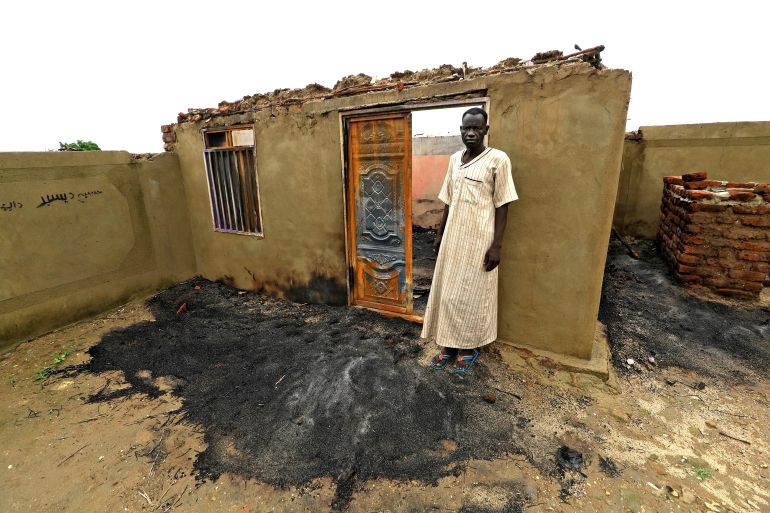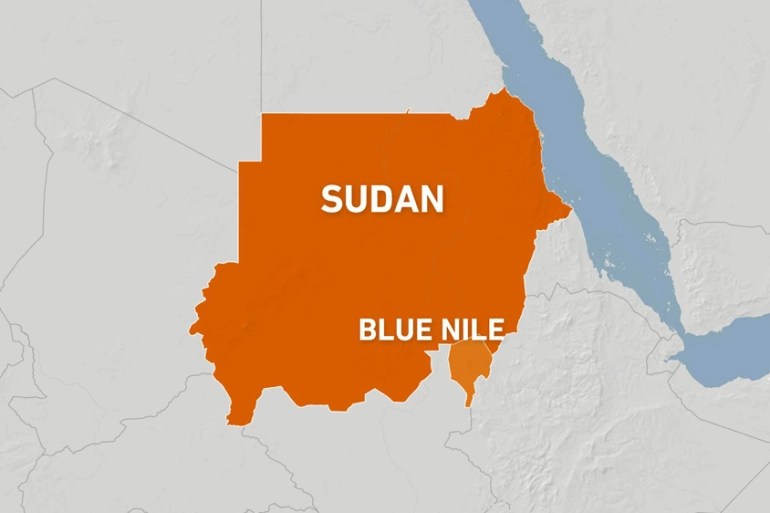Seven killed in latest tribal violence in Sudan’s Blue Nile state
The clashes follow intercommunal violence between Hausa and Birtha ethnic groups in July that left 105 dead.

At least seven people have been killed in intercommunal violence in Sudan’s southern Blue Nile state, weeks after large clashes in area, according to state officials.
At least 23 others were injured in the latest bout of violence, which occurred in two parts of the state. The cause was still under investigation on Friday, the Blue Nile state’s security committee said.
Keep reading
list of 3 itemsSudan protester killed at anti-coup rally: Medics
Sudan journalists vote for first independent union in decades
The committee also announced a curfew in two large cities of al-Damazin and al-Roseires, according to the France-based Sudan Tribune news portal.
Activist Bashir Hassan Bashir told the news site that the violence appeared to stem from a dispute after members of the Hausa ethnic group sought housing in either public buildings or homes they had abandoned during the July clashes.

During that month, fighting between the Hausa and Birta tribes left 105 people dead.
The fighting forced thousands of people from their homes, with many telling Al Jazeera that ongoing fighting had complicated aid access to those internally displaced within the state.
The violence followed accusations from the Birta, who have long inhabited Blue Nile state, that the Hausa, who inhabit farming areas across the country, were trying to lay claim to parts of their land.
The Hausa have said the violence began after the Birta rejected their request to create a “civil authority to supervise access to land”.
Sudan’s military leaders, who seized power in October 2021, have said they want to preserve the country’s stability and are working to beef up security.
However, observers say the military takeover has created a security vacuum that has led to a resurgence in tribal violence in several areas that have long seen unrest.
Recent violence has also broken out in the country’s eastern coastal regions and in Darfur, despite the government reaching a peace deal with rebel groups in the western region in 2020.
Protesters have accused the military rulers of failing to protect civilians and further stoking tribal conflict.